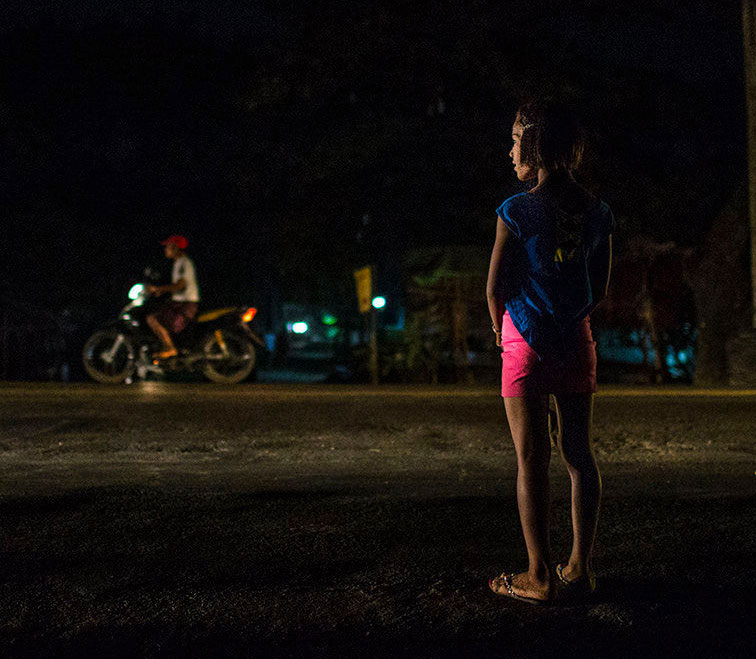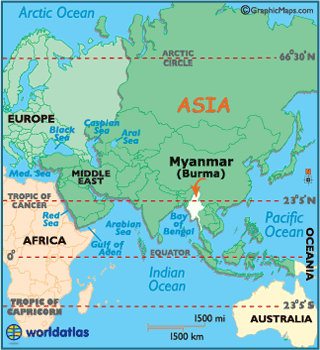For privacy, LGBT Burmese use a secret language of their own
Colin Stewart is a 45-year journalism veteran living in Southern…
Gay and transgender people in Myanmar (formerly Burma) often use a language of their own, called “bansaka”, which allows them to chat with each other without being understood by outsiders.

These are excepts from an article in The Economist about the use of bansaka in Myanmar:
Bansaka, meaning slang, involves switching vowels within words (coffee, a loan word from English, becomes keefaw) and giving new meaning to Burmese words. Puns feature heavily. Asin, an adjective used to describe gemstones of great clarity, refers to an attractive man. …
The overall result is gibberish to outsiders. That’s the point. Sexual minorities often invent their own secret languages to conceal their identities and speak privately. Gay and transgender Burmese switch to bansaka when they want to gossip about somebody nearby.
“When an ugly customer walks in wanting to look like Beyoncé,” explains Thu Yain Maung Maung, a make-up artist, “you’d bitch about this with your colleagues.”

In private, gay people deploy bansaka as a sign of affection and invent new words and even gestures to entertain each other.
Moe Aung of Kings N Queens, an LGBT advocacy group, laughs as he and his friend explain the latest addition to their repertoire. The “OK” hand gesture, with thumb and index finger forming a circle and the remaining three fingers flared out, resembles “wa lone,” a letter in the Burmese alphabet; “wa” also refers to a full belly. To those in the know, the hand gesture therefore means “I’ve had enough, stop” and sometimes “Stop talking”.
Some 90% of Burmese are Buddhist, and many of them believe that being gay or transgender is punishment for sexual sins committed in a past life. LGBT people are seen as morally corrupt, a view which is bolstered by colonial-era laws that still criminalise homosexual sex….
LGBT people routinely endure discrimination and abuse at school and in the workplace; many also report being assaulted by family members or the police, according to David Gilbert of Australian National University.
Bansaka can provide a modicum of protection. When Mr Moe Aung, who performs as a drag queen, wants to go to a public toilet, “I might want a friend to go with me for my safety. That conversation needs to be private. If I don’t use slang in that situation people can look at me funny.” He says that going solo invites rape.`
Most gay men and transgender women learn bansaka at work, in the few jobs open to them: spirit mediumship, hairdressing, make-up and floristry. “[These jobs] offer more than employment,” says Mr Gilbert. “They operate more like alternative families.” Employees typically live together, in their workplaces. Younger members of staff, or “children”, pick up the lingo from their boss or “mother”.
Today bansaka offers less protection than it used to. Over the past 15 years, the public has cottoned on. Though most don’t understand it, they “do recognise that it’s bansaka”, says Mr Thu Yain Maung Maung, and have even adopted some words.
Bansaka may also be losing its utility for the young. Hein Maung, a gay 24-year-old, says that gay youths hardly speak it anymore; instead they communicate privately with each other via social media.
But Mr Moe Aung is sceptical. His organisation hosts picnics attended by lots of youngsters who find learning bansaka fun. “The slang will never disappear,” he says, before flashing the “OK” hand gesture.
Related article about another secret gay language:
- A brief history of Polari: the curious after-life of the dead language for gay men (February 2017, The Conversation)
Related articles about Myanmar:





Intriguing and insightful
Dear David,
You probably would also like this article, which a reader recommended. I added this link to it at the end of the Burma article:
Related article about another secret gay language:
A brief history of Polari: the curious after-life of the dead language for gay men